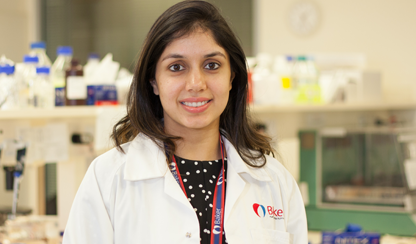
Baker Institute scientists will investigate novel ways to lessen the negative impact of diabetes on the heart, thanks to newly announced funding from Diabetes Australia.
Dr Arpeeta Sharma and Dr Dragana Dragoljevic have each received $70,000 as part of the Diabetes Australia Research program.
Dr Sharma, Group Leader in the Cardiovascular Inflammation and Redox Biology Lab, hopes to identify a new drug therapy to improve the lives of diabetic patients with hard-to-treat hypertension and heart failure.
Dr Dragoljevic, postdoctoral scientist in the Haematopoiesis and Leukocyte Biology lab, aims to determine if diabetes induces rapid production of mutated stem cells and white blood cells to cause heart disease.
Baker Institute Director Professor Tom Marwick said the Institute was committed to addressing the link between diabetes and cardiovascular disease, with cardiovascular disease the leading cause of death in people with diabetes.
"Cardiovascular disease is the most important complication of type 2 diabetes, accounting for not only the majority of its financial costs, but also a large proportion of the reduced health and reduced life expectancy in those with the condition," Professor Marwick said.
"Diabetes doubles a person's risk of developing or dying from cardiovascular disease. This risk is even more pronounced in women, those with early-onset diabetes and Indigenous Australians.
"But death from cardiovascular disease is not inevitable in people with diabetes, and thanks to the support of Diabetes Australia, our research aims to find novel ways to significantly reduce cardiovascular risk.
"The Institute has a long, proud history of diabetes discoveries dating back more than 95 years and we're very grateful to Diabetes Australia for these grants to continue our pioneering work."






